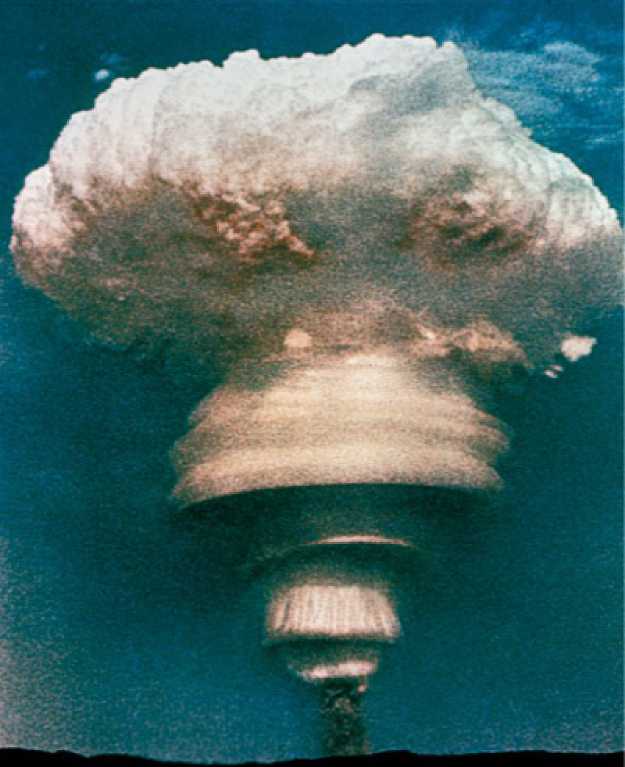HONG KONG, June 17-Communist China announced today that it had successfully exploded a hydrogen bomb less than three years after becoming a nuclear power. Reporting this major breakthrough, Hsinhua, the Chinese Communist press agency, gave no details of the yield from the explosion or the manner in which the test was carried out.
The Hsinhua announcement declared: “Today, on June 17, 1967, after the five nuclear tests in two years and eight months, China successfully exploded her first hydrogen bomb, over the western region of the country.”
The latest test coincides with the visit to the United Nations of Premiei Aleksei N. Kosygin. The timing of previous Chinese tests had been arranger to give them the greatest possible impact on world opinion, and analysts said the explosion announced today was no exception.

China exploded its first hydrogen bomb on June 17,1967.
A Hsinhua report earlier today condemned Premier Kosygin’s visit to the United Nations, declaring that it was aimed at promoting “worldwide American-Soviet collaboration” and predicted that the talks between Premier Kosygin and President Johnson would result in a “deal on a nucleai non-proliferation treaty.”
The test announcement will provide much-needed enhancement of the prestige of Chairman Mao Tse-tung and his followers after a year of turbulence in which they appeared to have made little progress in efforts to crush opposition elements and enforce Mr. Mao’s policies.
Internally the announcement is expected to strengthen the hand of the Maoists and, as a national achievement, the tests probably will have a unifying effect on the country’s quarreling factions. The announcement also indicates that despite continuing reports of anti-Maoist activity in Sinkiang
Communist China’s nuclear progress does not appear to have been affected by the Cultural Revolution.
The worldwide effect of the hydrogen bomb test will be to underline the military threat posed by Communist China, which has become more unpredictable and belligerent during the course of its internal convulsions.
Although Mr. Mao’s ideological pronouncements have derided the nuclear weapon as a “paper tiger,” the explosion of a hydrogen bomb reflects the high priority that China has given to the development of a nuclear arsenal and takes the nation a step further toward operational nuclear capability.
“Amidst the song of decisive victory of the great proletarian Cultural Revolution of our country, we solemnly announce to the people of China and the whole world that this brilliant prediction, this great call of Chairman Mao’s, has been realized,” the Hsinhua announcement said. Hsinhua said the Chinese people were proud of this, and revolutionary people the world over would also take it as a matter of pride.
The agency said the success of China’s hydrogen bomb tests had “further broken the nuclear monopoly of United States imperialism and Soviet revisionism and dealt a telling blow at their policy of nuclear blackmail. It is a very great encouragement and support to the Vietnamese people in their heroic war against United States aggression and for national salvation, and to the Arab people in their resistance to aggression by the United States and British imperialists and their tool, Israel, and to the revolutionary people of the whole world.”
The communique added: “We solemnly declare once again that at no time and in no circumstances will China be the first to use nuclear weapons.”
The Chinese have opposed the treaty for a partial nuclear test ban and declined a United Nations invitation to take part in a world disarmament conference.




 World History
World History









